The first three months phase of your baby is that of rapid-fire growth and development. There are numerous milestones that are anticipated to be developed by parents and caregivers during these three months. Your newborn baby is entering into the world and literacy to interact and communicate with the social world by learning important cues from the outside world. Then are certain milestones mentioned that the newborn baby is anticipated to achieve during the first 3 months of life:
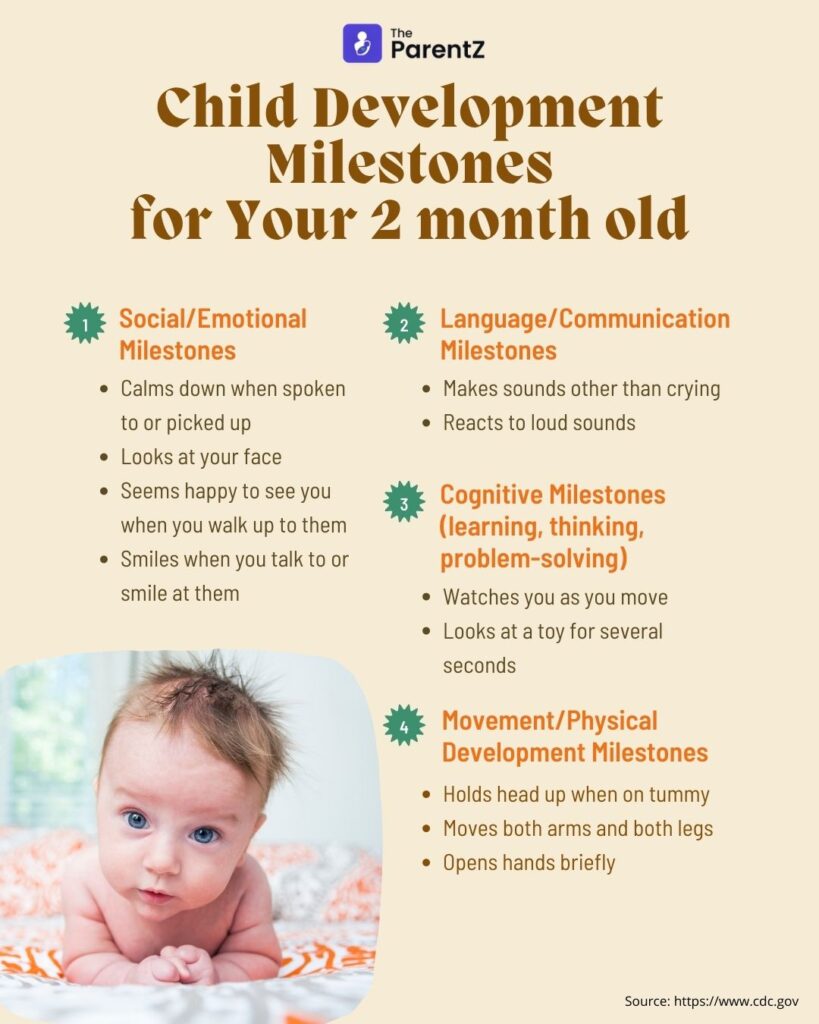
Child Development Milestones for Your 2 month old
Child Development Milestones for 1 to 3 months old baby
Physical Growth
Average height gain per month is anticipated to be around 1 inch, and weight gain is 1.5 to 2 pounds per month.
There is rapid-fire growth achieved during this phase of both height and weight.
Social And Emotional Development Of Your Baby
During the fist one month, your baby might not be interacting much. But as your baby begins to grow and reaches two to three months, they will show certain cues like smiling at analogous faces like their parents.
- They might gaze and look at faces talking to them.
- They begin to familiarize faces.
- They enjoy the comfort of being held in their parent’s arms during this phase.
- They might also calm down when you talk to them or hold them in your arms.
During this phase at around three months, they might also enjoy the color of vibrant toys and gaze at them. Various colorful toys attract babies during this phase.
Cognitive Development Of Your Baby
Your baby is constantly learning during first 3 months. During the first month, they might not develop important cognitive thinking capacities, but during the second and third month, they begin to respond to familiar voices or familiar faces. They’re also constantly learning or getting acclimated to a particular authority or routine.
They might understand familiar sounds of their mother singing or their caregiver talking with love to them. They might respond to them by giving them a smile or start prattling.
Language Development Of Your Baby
As your baby reach age of two to three months, they learn to develop eye contact and also make prattling sounds.
Sleep Pattern
During the first many weeks of life, babies enjoy their sleep. They sleep for up to 18 hours a day and may get up only for feedings. As your baby continue to grow, they begin to stay awake for a longer during the day, therefore, having longer stretches of sleep during the night. This can be relatively relieving for parents whose sleep pattern has been disturbed during the initial days after childbirth.
Feeding Reflex
During the first few weeks and months, your baby might need to be fed every 2 to 3 hours. As months passes by at the end of the 3 to 4 months, your baby will be suitable to sustain for a longer period of time without feeding as you baby will be able to drink more milk at each feeding. Certain hunger cues that may indicate that your baby is empty is them licking their lips or getting relatively restless.
Developing Different Types Of Reflex
One of the reflexes that you can anticipate your babies to develop during the first three months is called the” Moro reflex,” wherein your baby gets startled suddenly by the sound of a loud noise. It’s a normal reflex developed during the first three months that generally fades down with time. Another reflex developed by babies during this stage is called the” lodging reflex,” meaning whenever the mother keeps her nipple towards her baby’s cheek, they start moving their mouth towards the nipple and begin sucking the nipple.
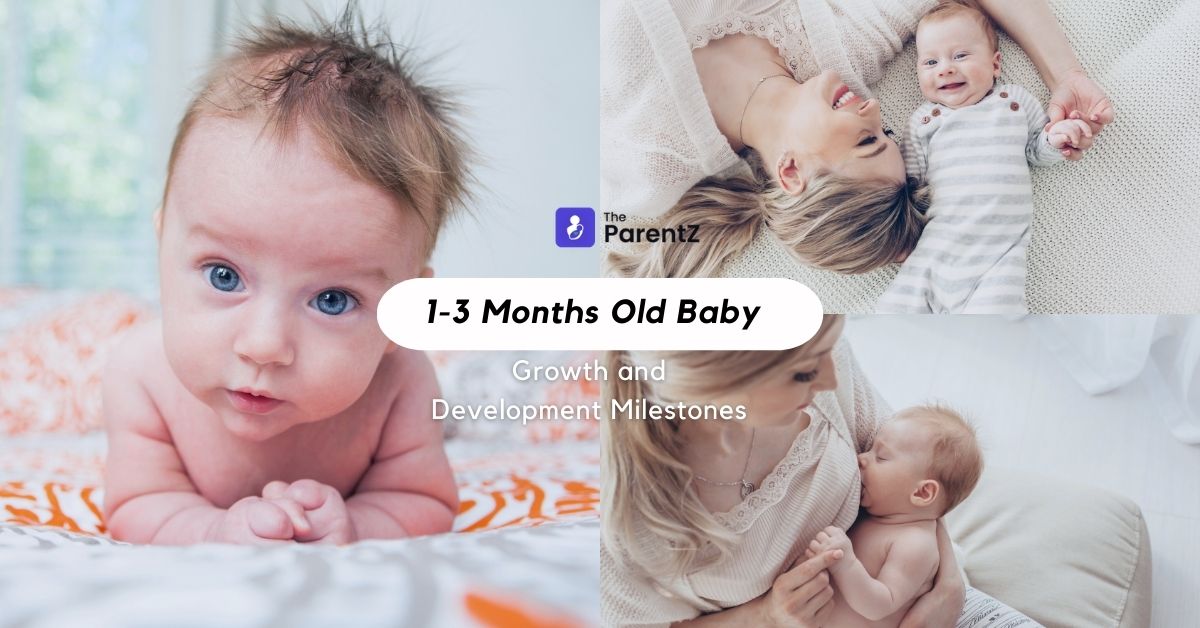


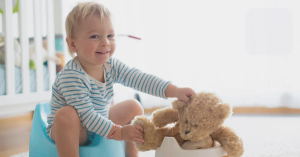
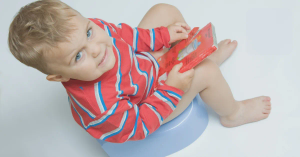
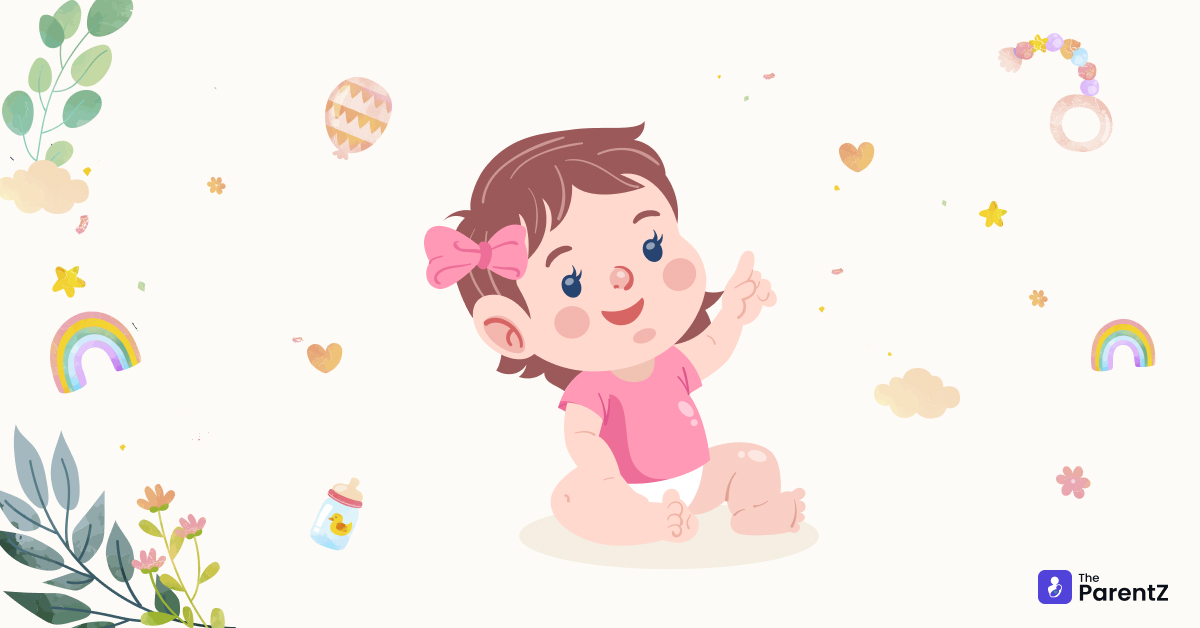


Be the first one to comment on this story.